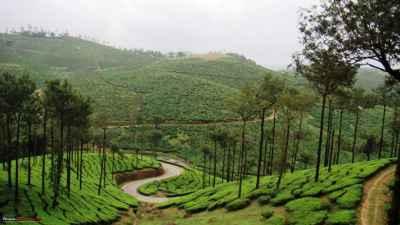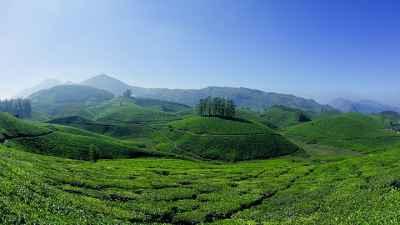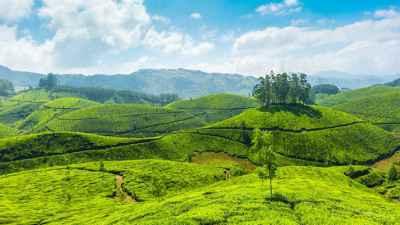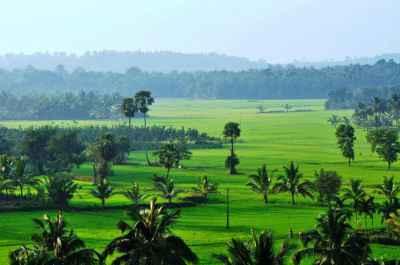Coconut Cuisine of Kerala: Recipes and Revelations
Coconut Cuisine of Kerala: Recipes and Revelations
Kerala, a coastal state in South India, is known for its lush green landscapes, backwaters, and of course, its coconut trees. The state is often referred to as the "Land of Coconuts" due to its abundant coconut plantations and the versatile use of coconuts in its cuisine.
Coconut is the central ingredient in Kerala's traditional cuisine, adding a unique flavor and texture to its dishes. Whether it's the use of grated coconut in curries or the extraction of coconut milk for rich gravies, the cuisine of Kerala truly celebrates the humble coconut in all its forms.
The Many Forms of Coconut
In Kerala, every part of the coconut tree is put to use. From the tender coconut water to the dried coconut flesh, each component has its own culinary significance.
The tender coconut water, which is the liquid found inside the young coconut, is a refreshing and hydrating beverage. It is often served as a natural coolant, especially during the hot summer months.
The tender coconut flesh, known as "scoops," is a delicacy in itself. Its soft and jelly-like texture makes it a perfect ingredient for desserts such as puddings and ice creams.
The grated coconut, called "thenga kothu" in Malayalam, forms the base for many traditional Kerala dishes. It is used in curries, chutneys, and as a garnish for various preparations.
Coconut milk, which is extracted from grated coconut, is a crucial ingredient in Kerala's cuisine. It adds a creamy and luscious texture to curries and gravies. There are typically two types of coconut milk used - the first extract, known as "onnam paal," is thick and rich, while the second extract, known as "randam paal," is thinner and lighter.
Traditional Coconut-based Recipes
The cuisine of Kerala offers a wide range of coconut-based recipes that cater to different taste preferences. Here are a few popular dishes:
- Avial: A delicious mixed vegetable curry made with a coconut paste and yogurt base.
- Kerala Fish Curry: A tangy and spicy fish curry made with coconut milk, tamarind, and a blend of traditional spices.
- Appam with Coconut Stew: Appam is a type of pancake made with fermented rice batter, and it is best enjoyed with a creamy coconut stew.
- Coconut Chutney: A versatile condiment made with grated coconut, green chilies, and spices. It is often served as a side dish with dosa, idli, and vada.
- Ela Ada: A sweet delicacy made with a rice flour and jaggery filling, steamed in banana leaves and flavored with coconut.
These are just a few examples of the many coconut-based dishes that Kerala has to offer. Each dish is a testament to the skillful use of coconut in creating a symphony of flavors.
The Health Benefits of Coconut
Coconut is not only a versatile ingredient in Kerala's cuisine but also offers several health benefits. It is rich in essential nutrients such as fiber, vitamins, and minerals. The medium-chain fatty acids present in coconut are known to boost metabolism and promote weight loss. Coconut is also considered beneficial for heart health and the immune system.
Additionally, coconut oil, which is derived from the fruit, is widely used in Kerala's cooking. It is known for its high smoke point, making it suitable for deep-frying and sautéing. Coconut oil is also believed to have antimicrobial properties and can be used for skincare and haircare.
Revelations from Kerala's Coconut Cuisine
The coconut cuisine of Kerala not only offers a delightful culinary experience but also provides insights into the state's culture and heritage. The use of coconut in various forms and the techniques involved in extracting coconut milk showcase the expertise and wisdom passed down through generations.
Furthermore, the coconut tree itself holds immense cultural significance in Kerala. It is considered a sacred tree and is often used in religious rituals and ceremonies.
Over the years, the coconut cuisine of Kerala has transcended borders and gained recognition worldwide. With its rich flavors and unique preparations, it has become a favorite among food enthusiasts across the globe.
In Conclusion
The coconut cuisine of Kerala is a true reflection of the state's natural abundance and rich culinary heritage. From refreshing coconut water to creamy coconut milk, each form of coconut adds its own distinct flavor and texture to the dishes.
Whether you're a food lover or a traveler, exploring the coconut cuisine of Kerala is an experience not to be missed. So, next time you visit this beautiful state, make sure to indulge in the flavors and revelations that await you in every dish.
Remember to share this blog post with your friends and family who appreciate good food and culture!
Disclaimer : The information provided in this blog is for general informational purposes only. While we strive to keep the content accurate and updated, TravelSetu assumes no liability for errors or omissions. If you believe any part of this blog infringes your rights or causes concern, please notify us immediately at info[at]travelsetu[dot]com so that appropriate action can be taken.























